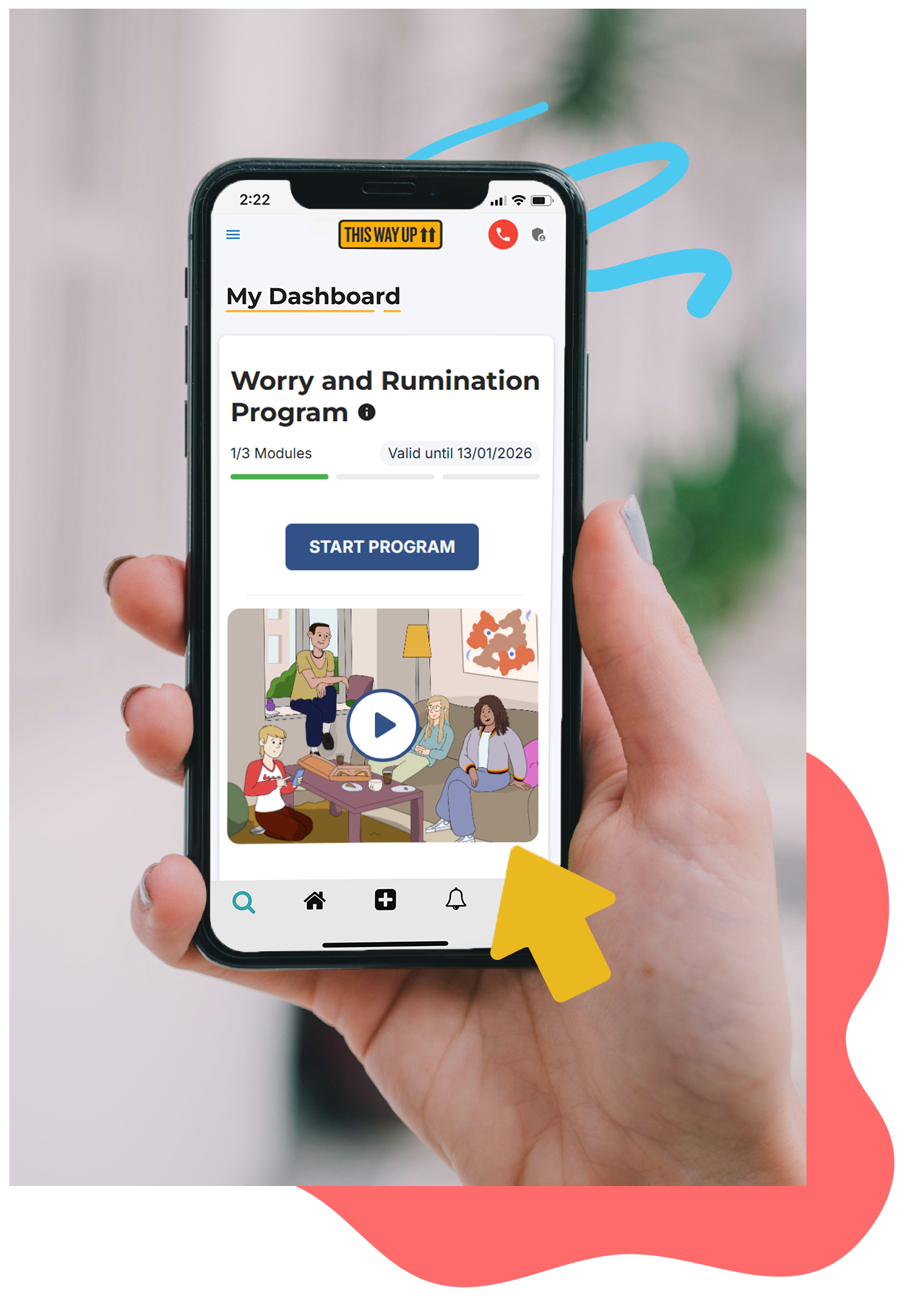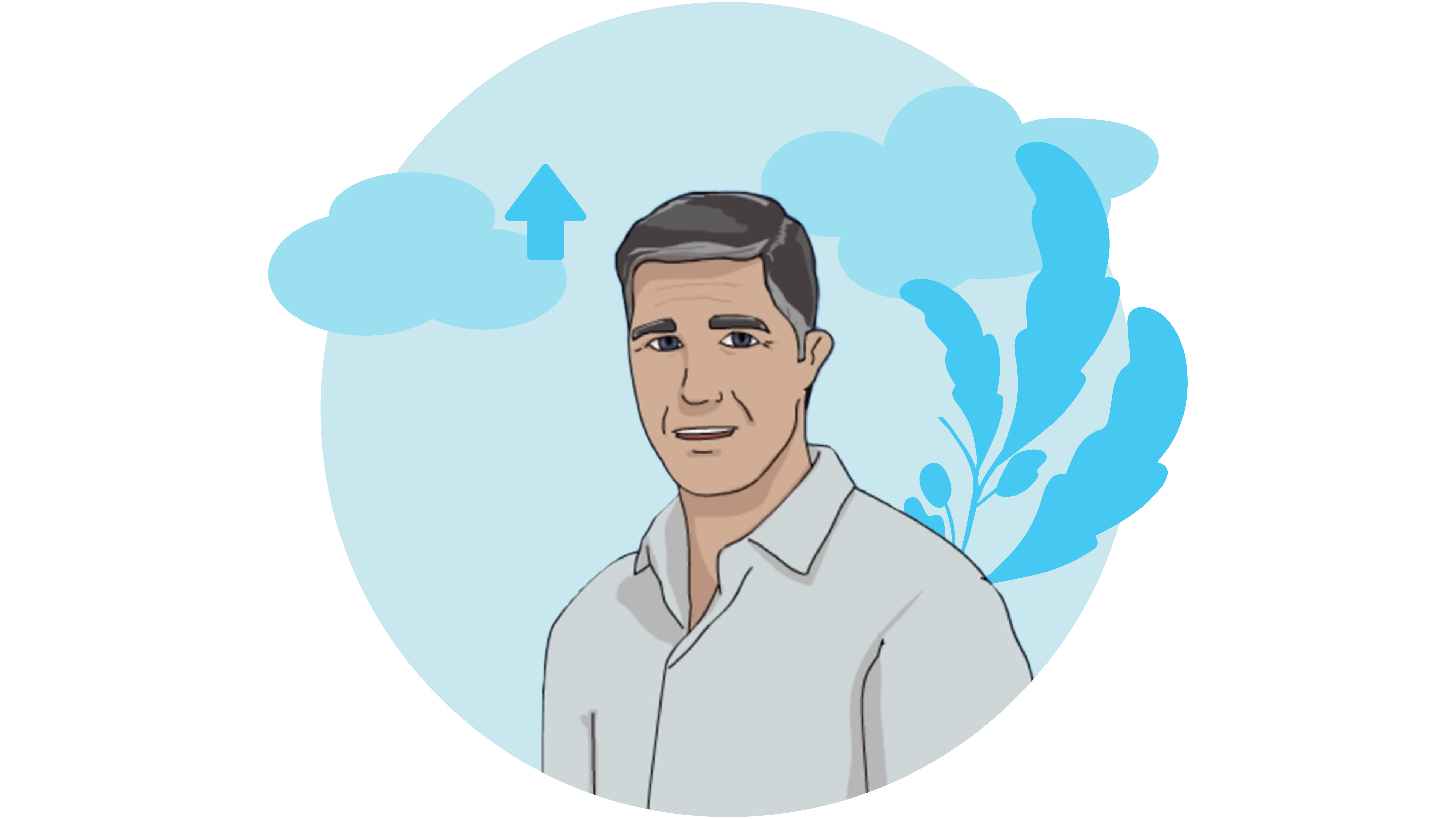Worry and Rumination
Worry and rumination involve repetitive, negative thinking that is unhelpful and distressing. These thinking patterns are common in times of stress, but when they persist, they can maintain symptoms of anxiety and depression.

Fortunately, worry and rumination are highly treatable, and many people who seek help improve significantly. Our treatment program is for young adults, and uses Cognitive Behavioural Therapy (CBT) and Mindfulness. This program provides practical skills to manage symptoms, break negative cycles, and help you feel better.
This program was developed in collaboration with headspace Griffith and UNSW, and funded by the NSW Ministry of Health.
What to expect
Format: Three online modules with five-day breaks between each one
Duration: Self-paced over 90 days, with extension option if needed
What's included
Story-based modules that teach core coping skills
Exercises designed to help you tackle your symptoms
Practical Action Plans to apply your new skills in daily life
Email and text reminders to keep you on track
Questionnaires to help you monitor your wellbeing
This program has been adapted from an adult-focussed Worry and Rumination program which has been proven effective in a research trial.
Are you ready?

Ready to try something new?
Try our clinically proven CBT-based approach to improve your mental health

Ready to learn?
Start learning practical skills to help you manage your symptoms and feel better

Ready to commit?
Dedicate just 20 minutes, three times per week, to improving your wellbeing
How to get started
To enroll in this program, speak with your clinician (e.g., your GP, psychologist, or other health professional), and see if they can prescribe you this program and monitor you throughout your online treatment.
Download and take this letter to your appointment

Not sure if this treatment is for you?
Take our short Wellbeing Test to receive a treatment program recommendation or view our other popular programs below.
Start Test
Generalised Anxiety
Do you often feel nervous, worried or tense about a range of different things?

Mindfulness
Do you want to improve your ability to stay present and boost your wellbeing by learning mindfulness skills?

Insomnia
Do you suffer from lack of sleep or poor sleep quality, and has this been going on for a while?
Who will find this program helpful?
This program is for young people (18 years and older) who experience excessive, repetitive, negative thinking like worry and rumination. This program teaches practical skills to manage unhelpful thinking and targets common related symptoms such as poor sleep, difficulty concentrating, anxiety and low mood.
What will I learn in this program?
This program follows the stories of two young people who are learning practical skills for managing their excessive worry and rumination. Practical skills include recognising worry and negative thinking patterns, using helpful ‘here and now’ thinking, problem-solving difficulties, staying active, postponing and shifting attention away from worry, and improving sleep.
How much does the program cost?
This program is free to enrol in under the guidance of a clinician (e.g., a GP, psychologist, or other mental health professional). This program is only available for enrolment with clinician supervision.
How long does the program take?
The program consists of 3 modules, and we recommend completing one module every 1-2 weeks, allowing time to practice the skills learned.
What kind of support will I receive?
This program requires clinician involvement and support. The clinician who prescribed the program to you can monitor your progress and help you apply the skills as needed. We recommend that you discuss what kind of support will be most beneficial to you before starting the program.
What if my worry is focussed on specific issues?
If your worry is focussed on specific areas, other programs may be more suitable:
Pregnancy and Postnatal programs
These programs are for excessive worry and anxiety. But people often experience worry and anxiety when they are facing very challenging, stressful, and dangerous situations in their life (like financial hardship, housing instability, ill health, abuse and violence, discrimination, and bereavement). Getting specific support and advice to address these difficulties can help manage worry and anxiety. Consider speaking to your GP, Services Australia, and your local public hospital or community health service.
What other help is available for my symptoms?
The best place to seek advice about treatment options for your specific symptoms and situation is from your GP. Click here for more information.
By submitting this form I agree to the THIS WAY UP Terms of Use and Privacy Policy.





